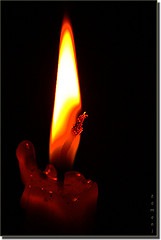 When you are the adult child of an aging parent who lives alone, safety is always a concern. Family caregivers are often surprised at how much greater risk their senior loved one has of being hurt or fatally injured in a fire.
When you are the adult child of an aging parent who lives alone, safety is always a concern. Family caregivers are often surprised at how much greater risk their senior loved one has of being hurt or fatally injured in a fire.
Because of health conditions, slower reflexes and other aging-related issues, seniors have double the risk younger adults do. Once they reach the age of 85, that risk climbs to nearly five times higher. Seniors account for 35% of all deaths in the U.S. caused by fire.
As National Fire Prevention Week kicks off, we have pulled together a few tips to help Connecticut caregivers know how to evaluate their senior loved one’s home for fire safety.
6 Fire Safety Tips for Connecticut Seniors
- Conduct a fire safety evaluation. The Federal Emergency Management Administration has put together a fire safety checklist you probably find to be of help.
- Space heater safety. For seniors who are trying to control utility expenses, space heaters often seem like a good solution. While fires caused by space heaters aren’t common, they often lead to fatalities when they do occur. 79% of home heating related deaths are caused by a space heater. These space heater safety tips from the National Fire Prevention Association can help keep your senior loved one safe.
- Fire safe kitchens. Cooking related problems are the leading cause of all home fires. Remind your aging loved one to stay in the kitchen when they have a pot cooking on the stove. You can also use an automatic turn-off device like Cook Stop. Older adults should avoid wearing clothing with loose-fitting sleeves that can easily ignite when they are cooking. Keeping a small fire extinguisher in an easily accessed corner of the kitchen is also advised.
- Smoke detectors for hearing impaired. A surprising number of older adults do not have a working smoke detector in their home. Fire prevention experts recommend at least one smoke detector on every floor of the home. If a loved one lives with a hearing impairment, products like the Silent Call Smoke Detector and the Silent Call Bed Shaker can accommodate their hearing loss. They can send a vibration alert and shake the bed to alert the senior to a fire.
- Have an escape plan. Seniors often live with health conditions and aging-related challenges that often make it more difficult to react quickly in an emergency. Developing an escape plan for them to exit the home in case a fire breaks out is important. Be sure to review and practice it with them a few times a year.
- Furnace Inspection. As we head in to the coldest months of the year, our final safety tip is to make sure your senior loved one’s furnace is inspected by a professional. It can help prevent both fire and carbon monoxide emergencies.
If you would like to read more about keeping a senior loved one safe from harm in a fire, this Fire Safety Checklist from FEMA and the U.S. Fire Administration is available to download at no cost.





